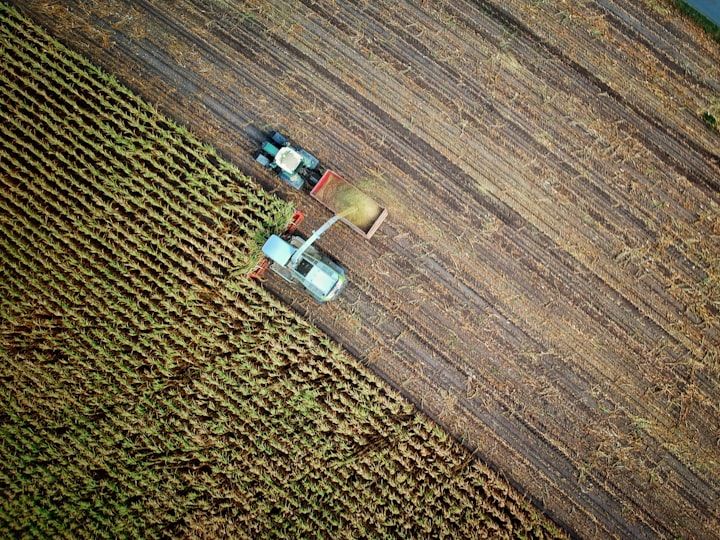Sustainable Agriculture
Cultivating a Greener Future: The Rise of Sustainable Agriculture

Introduction:
The world has witnessed a growing concern for environmentally friendly business practices in recent years. In the pursuit of a greener and more resilient future, sustainable agriculture has emerged as one of these. A variety of practices that place an emphasis on environmental stewardship, social responsibility, and economic viability make up sustainable agriculture. Sustainable agriculture has the potential to feed a growing population while safeguarding the planet's precious resources by incorporating cutting-edge methods and natural approaches.
Benefits of sustainable agriculture for the environment:
Water and soil conservation: Practices like crop rotation, cover cropping, and less tillage are all supported by sustainable agriculture, which places an emphasis on the health of the soil. By increasing their capacity for water retention, these methods increase soil fertility, prevent erosion, and reduce water consumption. They also keep freshwater ecosystems safe by reducing nutrient runoff and water body contamination.
Conserving Biodiversity: The importance of biodiversity in sustaining resilient ecosystems is recognized by sustainable agriculture. Agroforestry is a method used by farmers to combine crops with trees to create habitats for beneficial insects and birds and lessen the impact of pests. The need for harmful pesticides is further reduced when natural pest control methods like biological control agents and beneficial plant associations are used.
Attenuation of Climate Change: By lowering emissions of greenhouse gases, sustainable agriculture contributes to the mitigation of climate change. It encourages the use of low-carbon methods like organic farming, precision farming, and agroecology. These techniques aid in the fight against climate change because they reduce the use of synthetic fertilizers, use less energy, and increase carbon sequestration in soils.
The Economic and Social Advantages of Sustainable Agriculture:
Food Safety and Development in Rural Areas: Rural development and food security both benefit greatly from sustainable agriculture. Sustainable practices increase food sovereignty, reduce poverty, and create employment opportunities by empowering local farmers and promoting diverse farming systems. Additionally, it encourages the cultivation of healthy crops, facilitating improved community access to healthy food.
Climate Change Resistance: Maintainable agribusiness assembles versatility despite environmental change influences. Farmers can better withstand extreme weather conditions like droughts and floods by cultivating a variety of crops and adopting climate-smart practices. This adaptability ensures a more sustainable and stable agricultural sector by safeguarding farmers' livelihoods and securing food production.
Financial viability: It has been demonstrated that sustainable agriculture is financially viable, contrary to the belief that sustainability comes at a cost. Reduced input costs, enhanced soil quality, and increased crop resilience are some of the long-term advantages of switching to sustainable practices, despite the fact that initial investments may be required. Farmers who practice sustainable agriculture also benefit from market opportunities and price premiums due to the rising demand from consumers for food that is produced sustainably.
Innovation and Technology's Role:
The spread of sustainable agriculture has been aided by innovation and technological advancements. Technology gives farmers the ability to make well-informed decisions, increase productivity, and minimize their impact on the environment in a variety of ways, including the use of drones and satellite imagery to monitor crop health and precision agriculture methods that maximize resource utilization. Biotechnology innovations also make it possible to develop climate-resistant and high-yielding crop varieties, enhancing the potential of sustainable agriculture.
Conclusion:
The focus of sustainable agriculture shifts from short-term gains to long-term environmental and socioeconomic sustainability, which is a paradigm shift in the way we produce food. Sustainable agriculture holds the key to feeding the world's growing population and protecting the planet's resources for future generations by incorporating environmentally friendly practices, fostering biodiversity, and placing farmers' and local communities' welfare first. Sustainable farming is more than just an option; It is a necessary step toward a future that is cleaner and more long-lasting.





Comments
There are no comments for this story
Be the first to respond and start the conversation.